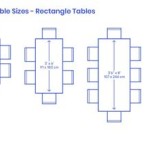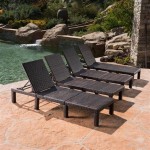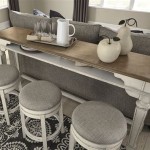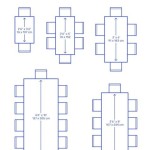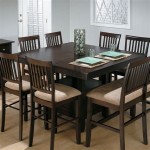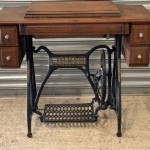Non-Wood Dining Room Tables
When it comes to choosing a dining room table, wood is often the first material that comes to mind. However, there are many other materials that can be used to create a beautiful and durable dining table, such as metal, glass, and stone. Non-wood dining room tables offer a number of advantages over traditional wood tables, including their durability, ease of maintenance, and versatility.
Durability
Non-wood dining room tables are typically more durable than wood tables. Metal tables are resistant to scratches, dents, and heat, making them ideal for families with children or pets. Glass tables are also very durable, but they can be more susceptible to chipping or breaking if they are not handled with care. Stone tables are the most durable of all non-wood dining room tables, and they are virtually indestructible.
Ease of Maintenance
Non-wood dining room tables are also easier to maintain than wood tables. Metal and glass tables can be simply wiped down with a damp cloth, while stone tables can be cleaned with a mild detergent. Wood tables, on the other hand, require more care. They need to be regularly oiled or waxed to protect them from moisture and scratches.
Versatility
Non-wood dining room tables are more versatile than wood tables. They can be used in a variety of settings, from formal dining rooms to casual kitchens. Metal tables are a popular choice for modern and industrial-style dining rooms, while glass tables are perfect for creating a light and airy feel. Stone tables are a great option for both traditional and contemporary dining rooms.
Types of Non-Wood Dining Room Tables
There are many different types of non-wood dining room tables available, including:
- Metal tables
- Glass tables
- Stone tables
- Laminate tables
- Acrylic tables
Each type of table has its own unique advantages and disadvantages. Metal tables are durable and easy to maintain, but they can be cold to the touch. Glass tables are elegant and stylish, but they can be more fragile than other types of tables. Stone tables are durable and heat-resistant, but they can be heavy and expensive. Laminate tables are affordable and easy to clean, but they can be less durable than other types of tables. Acrylic tables are lightweight and durable, but they can be scratched if they are not handled with care.
Choosing the Right Non-Wood Dining Room Table
When choosing a non-wood dining room table, there are a few things to consider, including:
- The size of your dining room
- The style of your dining room
- Your budget
- Your personal preferences
It is also important to consider the type of use that the table will get. If you have a large family or entertain frequently, you will need a table that is durable and easy to clean. If you have a small dining room, you will need a table that is compact and does not take up too much space.
Conclusion
Non-wood dining room tables offer a number of advantages over traditional wood tables. They are more durable, easier to maintain, and more versatile. When choosing a non-wood dining room table, it is important to consider the size of your dining room, the style of your dining room, your budget, and your personal preferences.

Length 140cm Ruth Designer Dining Extendable Non Table Available In High Quality Heat Resistant And Scratch Sintered Stone Top

Non Dining Table Ygg Lyng

140x140cm Garden Square Non Wood Dining Table With 2 Plates Outdoor Aluminium Made In Com

60 Pervis Dining Table White Clear Glass Acme Furniture Modern 4 Seater Criss Cross Wood Base Non Extension

Length 130cm Olivier Designer Extendable Non Dining Table And Chairs Dt1115

The Story Of Non Dining Table Ygg Lyng

Non Wood Store Dining Table

How To Style Dining Table With Mismatched Chairs

Non Extendable Round Dining Table Oak Scandinavian Handcrafted Eco Friendly High Quality Steel Frame White FjÄril Etsy Singapore

Wholesale Factory With Non Slip Mat Carbo Steel Black Matte Marble Square Dining Table Base Made In Com

